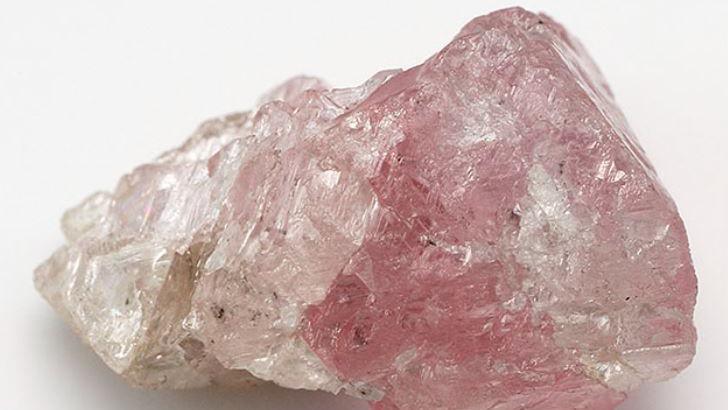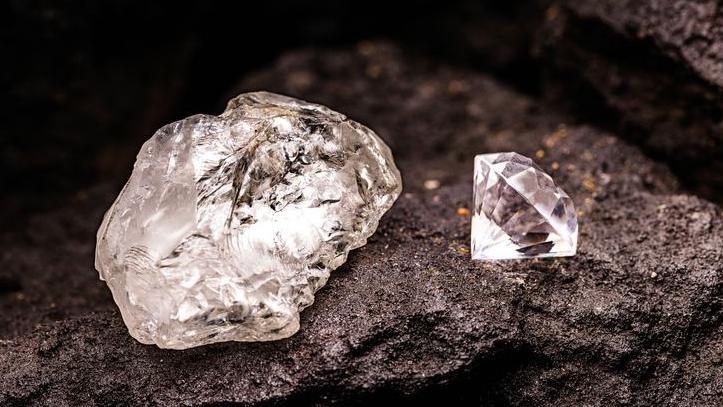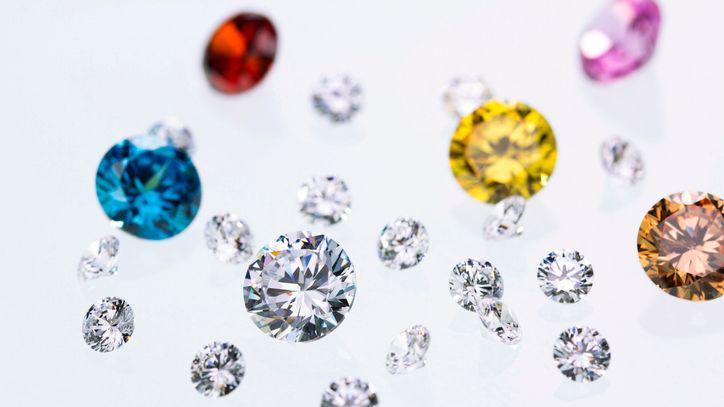Rare half-pink diamond discovered in Botswana

The Rare pink and colourless diamond
- Published
A rare two-coloured diamond has been discovered in Botswana, in southern Africa.
The rough stone is half-pink and half-colourless and weighs 37.4 carats - around 7.5 grams.
Experts think the diamond probably formed in two stages - with the coloured half likely developing first.
Pink diamonds are very unusual, and scientists say they're still not entirely sure how they form.
More like this
Family finds diamond worth thousands in US park
- Published26 September
Could Mercury be hiding a layer of diamonds?
- Published29 July 2024
Fortune Pink diamond sells...for a fortune!
- Published9 November 2022
How are natural diamonds formed?

Rough diamonds (left) can be cut into fancy shapes and set into jewellery
Diamonds are rare minerals made of carbon that are formed deep within the Earth, below the surface in the upper mantle.
There, carbon deposits are exposed to an extreme amount of pressure and heat, which slowly turns them into diamonds. This process can take days, months and even millions of years...or longer!
Now, you might be wondering how we find diamonds here on the Earth's surface, when they are formed in the Earth's mantle? Well it's down to ancient volcanic eruptions.
This took place a really long time ago, and forced the diamonds up quickly to the Earth's surface, where they stayed.
Nowadays, scientists have the technology to make diamonds in laboratories, which some people argue is a more environmentally way of creating diamonds, rather than digging deep mines to get them out of the Earth.
One inventor has even created diamonds by using the carbon in our air, calling them sky diamonds!
Why are some diamonds colourful?

Most naturally coloured diamonds get their colour from chemical elements during the formation process.
For example blue diamonds get their colour from an element called boron, and yellow diamonds get their colour from nitrogen.
As for pink diamonds, scientists are not yet certain how the diamonds get their unique colour, but it is thought that it happens due to a change in the diamond's structure during its formation.
